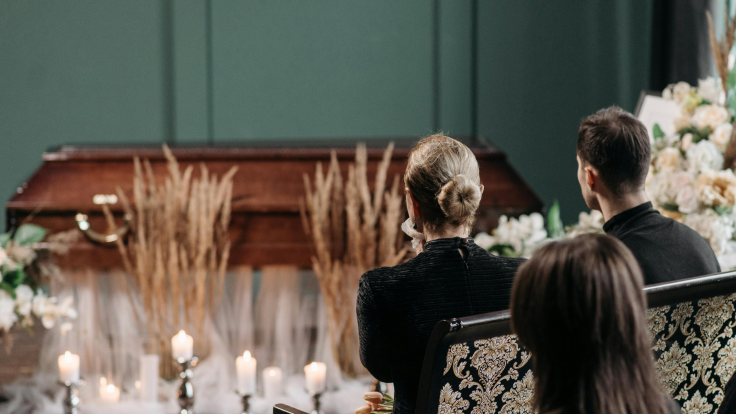Funeral Director Is the Latest Trendy Job Opp; Meet the First-Time Funeral Directors Changing How Ireland Says Goodbye
As more young professionals switch careers, a new wave of Irish funeral directors is redefining tradition in one of the country's oldest roles

A growing number of first-generation funeral directors are leaving traditional careers behind to take up work in one of Ireland's oldest and most private professions: reshaping how the country says goodbye to its dead.
In cities like Cork and Tralee, new faces are entering the funeral industry without any family background in it, drawn by personal experience and long-held ambition. Many, like Joseph Twomey and Lisa Dillane, are turning away from stable careers in surveying and music to begin work in embalming, funeral arrangement, and bereavement care — roles once almost exclusively inherited through family-run firms.
Their entry into the sector reflects a wider national shift. The Irish Association of Funeral Directors (IAFD) says that, in 2010, around 60% of students on its training course came from families with funeral businesses. By 2024, that figure had dropped to under 10%, showing a marked change in who is stepping forward to take up the role.
A Childhood Fascination Becomes a Lifelong Calling
Joseph Twomey, 27, from Cork, says he knew from the age of 13 that funeral directing was the only job he wanted. While most of his peers followed sports figures, he was inspired by funeral director Val O'Connor, whom he first saw at a neighbour's funeral.
At just 15, he wrote O'Connor a letter, admiring the respect he commanded and expressing his desire to one day work in the same field. O'Connor responded with a phone call and helped organise work experience for Joseph, which eventually led to his full-time role at O'Connors Funeral Home on North Gate Bridge.
Though he initially trained and worked as a quantity surveyor in the UK, Joseph said the idea of returning to funeral work never left him. His career change came with risk, but not regret. He completed the IAFD's professional course in 2024 and now carries out everything from embalming to family support.
A Singer's Career Shift
In Tralee, 37-year-old Lisa Dillane took a different route. A former professional singer and private music tutor, she is currently training to become an embalmer under the guidance of David McGowan, a well-known figure in the profession based in Sligo.
Her first interest in the work came at age 11, after attending a friend's grandmother's funeral. Seeing the care with which the body had been presented left a lasting impression, and later experiences singing at funerals further solidified her interest in the process happening behind the scenes.
Now that her son is older, Lisa has chosen to fully commit to the field. With a music degree already behind her, she found her previous anatomical studies surprisingly relevant to the physical side of embalming. She stresses that it's not just about presentation — it involves technical precision and emotional awareness, both for the deceased and the grieving families.
Changing Traditions in a Quiet Industry
Historically, funeral directing in Ireland was a family business, often linked to shops or pubs in smaller towns. According to IAFD president Niamh Sweeney, that's changing rapidly. While rural areas still have these traditional setups, larger towns and cities now rely on more structured funeral firms that require trained, dedicated staff.
These modern businesses have opened their doors to people from completely unrelated professions, providing formal training and mentoring opportunities. The demand for a broader skillset has also increased. Funeral directors are now expected to oversee everything: from embalming and logistics to media coordination and family liaison.
With cremations on the rise but traditional wakes still common, the need for presentable viewing remains strong in Irish culture. The embalmers and directors are often the last people to care for the deceased, and they treat this role with quiet dedication, rarely recognised publicly.
A Job Few See but Many Will Remember
Lisa Dillane describes her new role as one that goes unnoticed, and that's part of its value. She compares it to the anonymity of street artist Banksy, where pride in the work doesn't come from recognition, but from knowing it was done right.
Funeral directors like her and Joseph Twomey are part of a generation that didn't inherit the profession; they chose it. With structured training, deep personal motivation, and the support of experienced mentors, they are now leading a quiet revolution in how Ireland honours its dead.
And as Lisa put it, 'Not everyone turns up for your birthday, but they'll turn up for your funeral.'
© Copyright IBTimes 2025. All rights reserved.





















